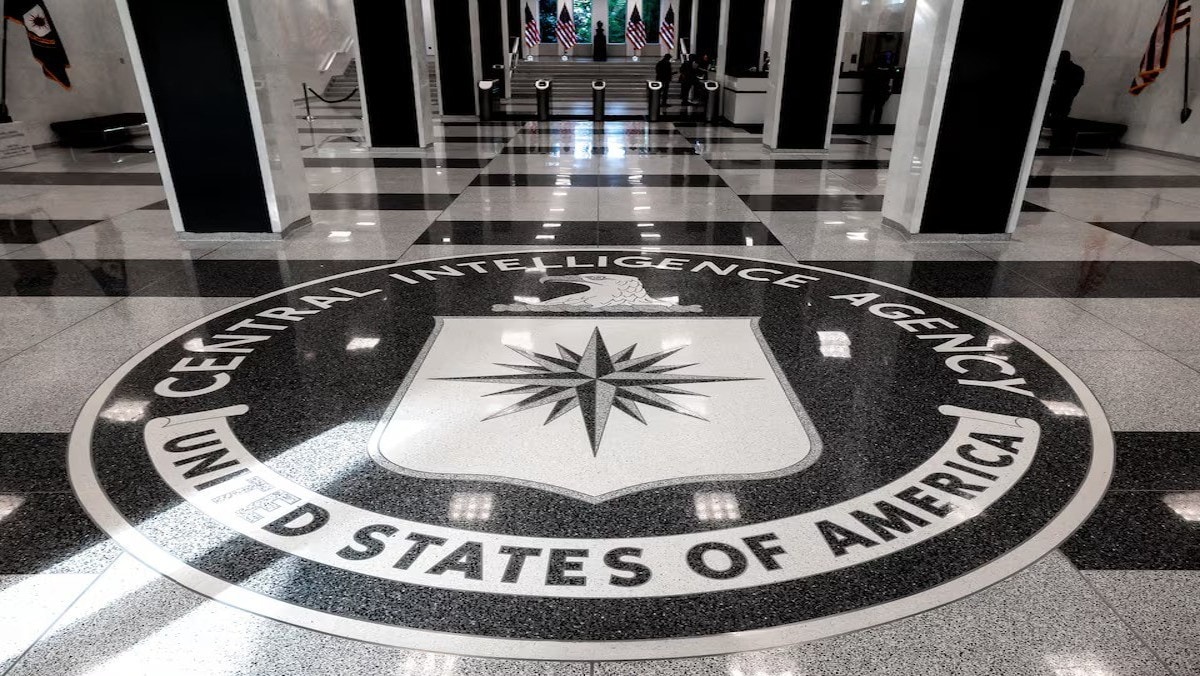
Hollywood, the world’s entertainment capital, is known for producing blockbuster films where America often emerges as the hero, saving the world from menacing threats—be they evil dictators, terrorists, or even alien invaders. But behind the glitz and glamour of the silver screen lies a lesser-known story: the significant influence of the US government, particularly the CIA and Pentagon, on the movies that shape public perception. This relationship, as outlined in books like CIA in Hollywood and Operation Hollywood , reveals how America’s defence apparatus has played a pivotal role in crafting cinematic narratives.
Blockbusters and Soft Power: The Pentagon’s Role Consider movies like Top Gun . It wasn’t just a box-office hit; it was also a subtle PR exercise for the US military. The Pentagon provided extensive support for the film, lending access to aircraft, ships, and military personnel and even co-writing the script.

The Department of Defence ensured that the movie portrayed the military in a favourable light, effectively turning the film into a recruitment campaign wrapped in an action drama. In Zero Dark Thirty , the CIA collaborated with filmmakers to present the manhunt for Osama bin Laden in a very particular way—one that aligned with the agency’s preferred narrative. This was not merely about factual accuracy but about controlling the tone and themes of how the story was told, making sure it presented a heroic image of US intelligence operations.
Hollywood as a Weapon of War While Hollywood’s role is often to entertain, it can also serve more insidious purposes. War, after all, is not just fought on the battlefield; it’s also fought in the minds of the public. Films like Argo (based on a real CIA operation to rescue American hostages in Iran) serve dual purposes.
They not only tell a gripping story but also reinforce narratives about American bravery and ingenuity. This isn’t just about patriotism—it’s also about shaping global opinions, particularly when it comes to America’s military actions. These cinematic stories frame US military involvement in conflicts as moral, just, and necessary, thereby garnering public support for wars and justifying interventions that often have deep political and economic underpinnings.
Reportedly, more than 2,000 movies and television shows have been influenced by the Pentagon and CIA. CIA in Hollywood describes how scripts are subtly adjusted to portray the US military and intelligence communities in a more positive light. Similarly, the book Operation Hollywood exposes how these collaborations work—often with writers and directors, with subtle changes in dialogues and scripts to achieve the results.
Superheroes and the Subtle Art of Influence The world of superheroes has enormous military’s fingerprints. In Iron Man, the character of Tony Stark, an arms dealer turned hero, could have easily been a critique of the American military-industrial complex. Yet, the film carefully navigates around this, ensuring Stark’s transformation doesn’t reflect poorly on the US’ military, turning him instead into a symbol of patriotism.
Similarly, Captain Marvel, one of the more recent entries in the Marvel Cinematic Universe, doubles as a de facto recruitment ad for the US Air Force. The film’s lead, Carol Danvers, is depicted as an Air Force pilot turned superhero, and the movie was heavily promoted in collaboration with the Air Force, with chic portrayals of operations and technology. Even iconic characters like Captain America carefully imbibe American values, strength, and righteousness, aligning closely with the image the Pentagon wants to project.
In Avengers: Endgame, when Captain America lifts Thor’s hammer, it’s not just a cool moment in superhero cinema—it’s a symbolic act, suggesting that America alone is worthy of such power. The International Game: China’s Influence on Hollywood While the Pentagon and CIA have long shaped Hollywood narratives to suit American interests, countries like China saw through this game early on. As the world’s second-largest box office market, China’s government ensured they had significant leverage over Hollywood scripts, ensuring that films are adjusted to suit its political goals and geopolitical interests.
One of the most striking examples of this influence is Doctor Strange . In the original comic book series, the character of the Ancient One is Tibetan. However, given China’s strained relationship with Tibet, the character was changed to Celtic in the film.
China managed to eliminate or reshape content it finds unfavourable, exerting its influence over how it’s portrayed in global media. In the war of narratives, this ensures that Chinese politics and national pride remain unchallenged on the world stage. Though in recent times, we hear that the relationship between Hollywood and China has soured.
Is India Taking Notes? While the US and China have effectively used their influence in Hollywood to project soft power, nations, such as India, have lagged in this regard. India has not fully harnessed the power of global cinema to shape international perception or advance its geopolitical interests. India has yet to embrace the potential of cinema as a tool of soft power and cultural diplomacy.
In a world increasingly defined by the narratives we consume, this could be a missed opportunity. The Hollywood-CIA-Pentagon Complex: What’s Next? The next time you’re sitting in a theatre, mesmerised by stunning special effects, gripping plotlines, and heroic American characters, take a moment to consider who might be behind the curtain. Behind every blockbuster, there may be a more strategic purpose, one that ensures the message aligns with the interests of those who control the narrative.
Many films are not just entertainment—they’re carefully crafted messages brought to you by the CIA, powered by the Pentagon, and occasionally nudged by foreign governments like China. These movies are about shaping perceptions, building national image, and, ultimately, winning the war of narratives. Anu Lall is the founder of YogaSmith and author of four books.
She is a lawyer and has worked in the pharmaceutical and technology industry in Asia, the US, and Europe. Views expressed in the above piece are personal and solely those of the author. They do not necessarily reflect Firstpost’s views.
.














